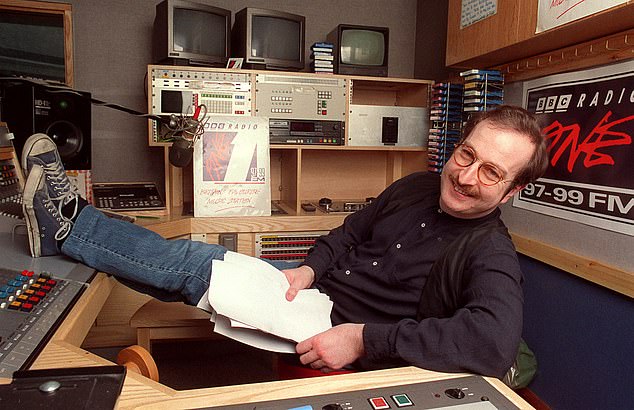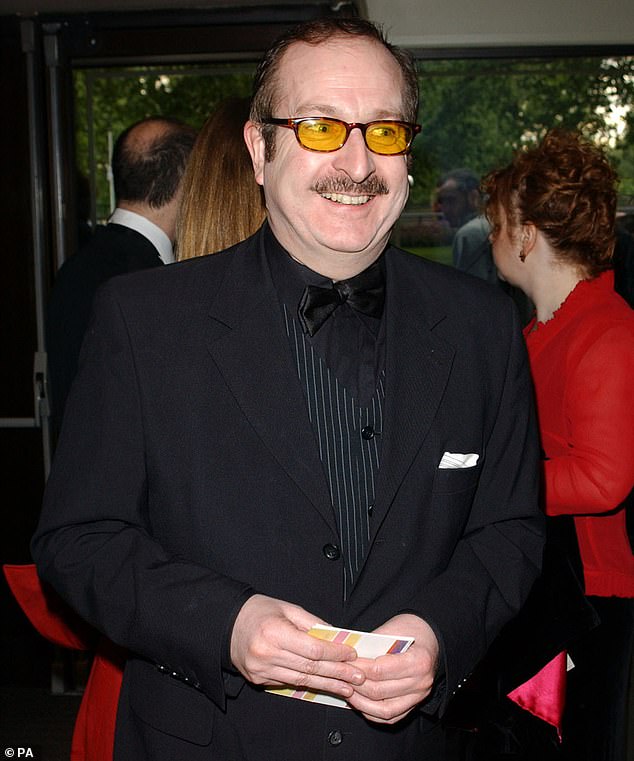Yes, you CAN die of a broken heart: everything you need to know about the poorly understood disease following the death of legendary BBC radio presenter Steve Wright
Broadcasting legend Steve Wright ‘died of a broken heart’ after losing his BBC Radio 2 show, his friend has speculated.
Publicist Gary Farrow, who knew the legendary presenter for four decades, said he was left ‘devastated’ by bosses who axed his popular afternoon slot in 2022.
Wright, 69, was found dead in his £2million flat in Marylebone, west London, on Monday morning after paramedics were ‘called to reports of an incident’.
Broken heart syndrome, medically known as takotsubo cardiomyopathy, is caused by extreme emotional distress that weakens one of the heart chambers.
Around 2,500 Britons suffer from the condition every year.
Steve Wright pictured in 1980
It is caused by a sudden release of stress hormones, which causes part of the heart to temporarily become enlarged and struggle to pump blood properly.
The loss of a loved one, financial worries and a sudden illness are examples of stressful triggers that can cause the syndrome, according to the British Heart Foundation.
Symptoms of the condition may include sudden chest pain, shortness of breath, palpitations, nausea and vomiting.
It is usually temporary and many people recover completely.
But the syndrome can permanently affect the pumping action of the heart, slowing the twisting motion of the muscle during a heartbeat.
Scans and blood tests are usually used to diagnose the condition.
Although there is no standard treatment for broken heart syndrome, doctors may prescribe diuretics to lower blood pressure, blood-thinning medications to reduce the risk of blood clots, and beta blockers or ACE inhibitors to reduce pressure on the heart.
Experts have long believed that takotsubo cardiomyopathy can be misdiagnosed as a heart attack because the symptoms and test results are similar.
However, unlike those who suffer from a heart attack, broken heart syndrome is not related to blocked arteries.
The condition is more common in women than men and more commonly affects older people, who are more likely to have lost their lifelong spouses.
Mr. Farrow told it The sun: ‘Steve lives for the show, he absolutely loved it – and the listeners loved him. My opinion is that he died of a broken heart.’
Former colleague Liz Kershaw slammed BBC bosses for their alleged ‘shabby’ treatment of Mr Wright, who she said had been ‘dumped by the BBC and treated like a tin of beans’.
Her outburst came as Radio 2 staff are said to be furious with station chief Helen Thomas who issued a statement paying tribute to the much-loved DJ, less than 18 months after he axed his popular Afternoon Show and moved it to a Sunday slot.
Wright was pronounced dead by emergency services who arrived at his home on Monday morning.
His family announced his death on Tuesday. They said: ‘It is with deep sadness and regret that we announce the passing of our beloved Steve Wright.
‘In addition to his son Tom and daughter Lucy, Steve is survived by his brother Laurence and his father Richard.

Steve Wright, who died aged 69, pictured in his recording studio in 1994

The DJ, seen in 2003, was awarded an MBE for radio services
‘Also beloved close friends and colleagues, and millions of devoted radio listeners who had the good fortune and great pleasure of bringing Steve into their everyday lives as one of Britain’s most enduring and popular radio personalities.
“While we all grieve, the family requests privacy during this extremely difficult time.”
Police said yesterday that his death was ‘unexpected’ but not suspicious and a report was being made for the corner.
Wright joined the BBC in the 1970s and for more than four decades presented shows on BBC Radio 1 and 2, attracting millions of listeners.
Wright was also a long-time presenter of Top Of The Pops on BBC One and presented the popular Sunday Love Songs weekend show on Radio 2 mid-morning.
His last show was a pre-recorded Valentine’s Day edition of the program two days ago. Wright told listeners in his final sign-off: “I’ll be back next Sunday for more love songs, ta-da then.”
